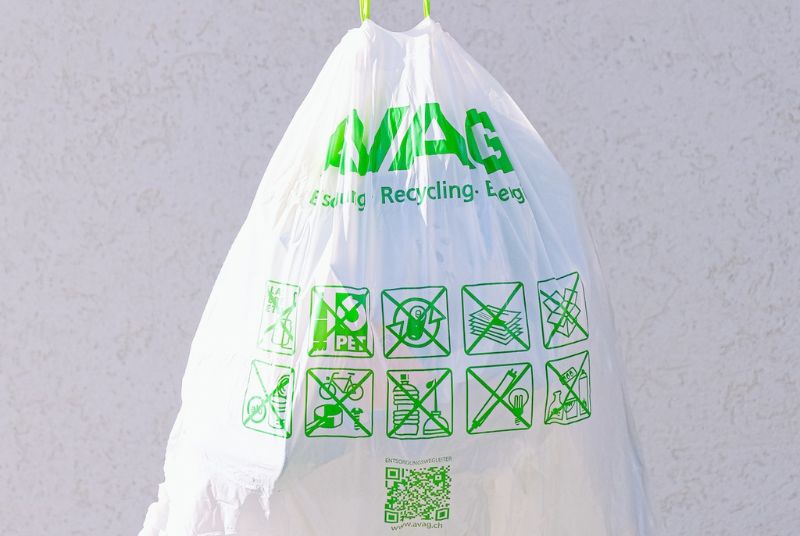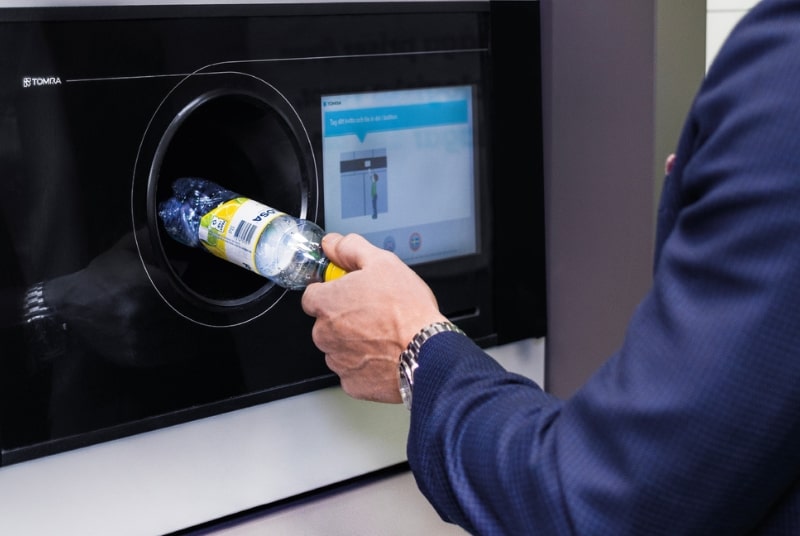Green Sweden - Choreographing Waste Management Initiatives
Historical Background of Swedish Waste Recycling Methodology
Sweden is indeed known for its efficient waste management initiatives and impressive recycling rates. The country has implemented a series of measures over several decades to tackle waste-related challenges and transform waste into a valuable resource. But let’s take a look at the historic steps that helped the country achieve such outstanding results. The government had to implement a range of waste management steps in Sweden that gradually led to extraordinary changes.
The story begins with the landfill ban in 1975. Sweden implemented a ban on landfilling certain types of waste in 1975, restricting the disposal of materials that could be recycled or incinerated for energy production. The Environmental Protection Act was approved in 1999. It emphasized waste prevention, producer responsibility, and recycling. This legislation aimed to reduce the environmental impact of waste and promote a circular economy.
In the 1990s, Sweden heavily invested in waste incineration plants equipped with energy recovery systems. These facilities not only reduce the volume of waste but also generate heat and electricity. Today, waste incineration provides about 20% of Sweden's district heating and approximately 1% of its electricity. Sweden expanded its waste-to-energy infrastructure, making it a key part of the country's energy mix. By 2017, Sweden had 34 waste-to-energy plants, which burned approximately 2.3 million tons of waste and generated electricity for around 1 million households.

The Swedish government established national recycling targets, including a goal of recycling 35% of household waste by 2005. These targets were revised over time, leading to more ambitious recycling goals. The country embraced innovative recycling techniques and invested in advanced recycling infrastructure. It implemented a comprehensive sorting and separation system, making it easier for citizens to recycle various materials. The country introduced incentives, such as lower taxes on recycled products, to encourage recycling.
Sweden implemented source separation and recycling programs. Source separation programs required households and businesses to sort their waste into different categories (e.g., paper, plastics, and glass). This enables efficient recycling and reduces contamination. Local recycling stations and systems for collecting specific waste items, such as electronics or hazardous waste, were established. Sweden adopted an Extended Producer Responsibility (EPR): framework, which makes producers financially responsible for the entire lifecycle of their products, including their proper disposal. This incentivizes companies to design products that are easier to recycle and reduces the burden on the public sector.
As of 2020, Sweden boasts one of the highest recycling rates globally, with more than 99% of household waste being recycled or recovered in some form. Only about 1% ends up in landfills. This impressive rate is achieved through recycling, composting, and energy recovery.

Comparison with Other Countries
Sweden's waste management achievements are indeed noteworthy. While exact comparisons can vary from one data source to another, several countries have also taken successful steps toward waste recycling and management:
- Germany is recognized for its comprehensive waste management system, which includes waste sorting, recycling, and energy recovery. The country has achieved high recycling rates, with around 67% of municipal waste being recycled or composted.
- Switzerland is known for its efficient waste management practices, including strict waste separation, recycling programs, and waste-to-energy facilities. The country recycles approximately 50% of its municipal waste.
- The Netherlands has implemented advanced waste management strategies, focusing on waste separation, recycling, and waste-to-energy plants. The country's recycling rates exceed 50% for municipal waste.
Recycling Machines
Sweden uses a widespread system of recycling machines known as "Pantautomat" or "reverse vending machines." These machines are situated in various locations across the country to facilitate the sorting and recycling of beverage containers, primarily plastic bottles, tetra packs, and aluminum cans. Pantautomaters operate on a deposit-refund system. When a person returns a beverage container to the machine, it scans the barcode or uses other identification methods to determine the material and brand. The machine then collects the container, sorts it accordingly, and issues a refund or deposit return to the user. These machines are typically placed in supermarkets, convenience stores, shopping centers, and public areas such as transportation hubs and parks. The machines are easily accessible, encouraging citizens to recycle their waste conveniently. Most food and beverage containers often carry a specific logo or marking indicating that they are eligible for recycling through the deposit-refund system. Glass bottles are usually not included in these machines but can be recycled separately in specially designated glass collection bins. The deposit-refund system implemented in Sweden motivates citizens to return their beverage containers for recycling. When purchasing a beverage, customers pay an additional fee as a deposit, which is refunded when they return the container to a recycling machine. The refund amount varies depending on the size and material of the container.

Recycling machines in Sweden are designed to be user-friendly and easily accessible. Placing the machines in supermarkets and other frequently visited locations makes it convenient for people to recycle their waste while going about their daily activities. The deposit refund also acts as an incentive for citizens and tourists to participate in the recycling process.
Such a scrupulous approach significantly contributes to the country's high recycling rates. These machines ensure that a significant portion of food and beverage containers are effectively recycled, reducing waste and promoting a circular economy. The system has created a sense of responsibility among citizens to actively participate in recycling efforts.
It's worth noting that while recycling machines primarily focus on beverage containers in Sweden, other types of recycling, such as paper, plastic packaging, and electronics, are facilitated through separate recycling programs and collection points. It allowed for minimizing the amount of waste to only 1 percent. This is exactly how much waste can’t be recycled yet and is moved to dump fills.
Waste Recycling Economy Benefits
Waste burning covers about 20 percent of the country’s heating demand. Each ton of waste burned brings about $47 in pure revenue to incineration factories. The country serves as a waste recycling hub for Norway and Finland, which willingly donate their waste to Sweden for free. In 2014, the country imported about 2.3 million tons of waste from Norway, Ireland, and Great Britain, which brought in $100 million in revenue.
Even electronics are recycled in Sweden, as the country is among the top leaders in electronics production with 200 million tons produced annually. Since 2014, all electronics retailers are obliged to collect all broken devices and recycle them. Citizens can bring an old, broken device and purchase a new, working one, getting a significant discount on the item they want. The country supports and encourages society to fix and recycle old household appliances, old shoes, and bicycles.
Sweden stands as a pioneer in the recycling industry due to its innovative and comprehensive waste management initiatives. The country's commitment to waste prevention, source separation, recycling infrastructure, and energy recovery has propelled it to achieve remarkable recycling rates, with over 99% of household waste being recycled or recovered. Sweden's strategic placement of recycling machines, such as the widely accessible Pantautomater, has made it convenient for citizens to sort and recycle beverage containers. By implementing a deposit-refund system and fostering a culture of responsibility, Sweden has successfully transformed waste into a valuable resource while minimizing landfilling. Through its relentless pursuit of a circular economy and dedication to sustainable practices, Sweden serves as an exemplary model for other nations striving to achieve high levels of waste recycling and environmental stewardship.
